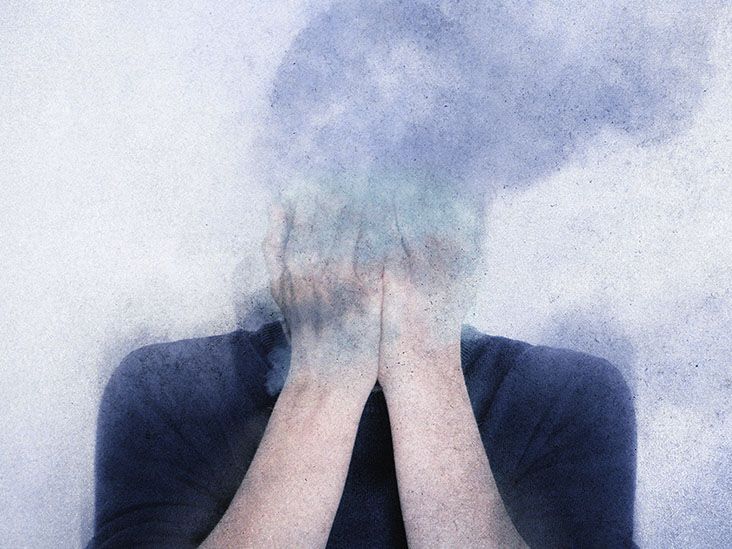Schizophrenia is a severe mental illness that often develops in late adolescence or early adulthood. Schizophrenia can affect a person’s thoughts, feelings, and behavior and affects social interactions and other everyday activities.
Schizophrenia is a fairly uncommon condition, affecting around
Schizophrenia is a lifelong condition, but treatment can help manage the symptoms.
This article will look at the causes and symptoms of schizophrenia and some of the treatment options available.

The symptoms of schizophrenia usually emerge when a person is in their
Sometimes, a person will start to show unusual behaviors from childhood, but these only become significant as they get older. In others, symptoms may appear suddenly.
Learn more about the average age of onset for schizophrenia.
The classifications and types of schizophrenia have changed over the years. Previously, health professionals may have classified schizophrenia as one of the following five types:
However, doctors no longer classify types of schizophrenia. The Diagnostic and Statistical Manual of Mental Disorders, 5th edition, text revision (DSM-5-TR) is the manual mental health professionals use to diagnose mental health conditions. The current version, DSM-5-TR,
Learn more about the different types of schizophrenia.
Schizophrenia affects people in different ways, but there are some common symptoms. These include:
- confused speech that is intact but hard for others to interpret and understand
- a lack of facial expression
- a lack of emotional expression
- a lack of motivation
- difficulty concentrating
- delusions and hallucinations
Before experiencing these symptoms, a person may appear:
- out of sorts
- anxious
- to lack focus
The following sections explore some of the main symptoms of schizophrenia in more detail.
Delusions
A person experiencing delusions has a fixed belief about something regardless of the evidence.
For example, they may believe that:
- They are very important.
- Someone is pursuing them.
- Others are attempting to control them remotely.
- They have extraordinary powers or abilities.
Hallucinations
Some people experience hallucinations. The most common type is hearing voices, but hallucinations can affect all the senses. For example, a person may also see, feel, taste, or smell things that are not really there.
Confused thinking and speech
A person’s thinking and speech may jump from one subject to another for no logical reason. Therefore, it may be difficult to follow what the person is trying to say.
There may also be memory problems and difficulty understanding and using information.
Other symptoms
The above symptoms can also affect a person’s:
- Motivation: The person may neglect everyday activities, including self-care. They may also experience catatonia, during which they can barely talk or move.
- Emotional expression: The person may respond inappropriately or not at all on sad or happy occasions.
- Social life: The person may withdraw socially, possibly through fear that somebody will harm them.
- Communication: The person’s unusual thought and speech patterns can make it difficult for them to communicate with others.
Many people with schizophrenia do not realize that they are unwell. Hallucinations and delusions can seem very real to a person who is experiencing them. This can make it hard to convince the individual to seek treatment or take medication. They may fear the side effects or believe that medication will harm them.
Schizophrenia usually appears in a person’s late teens or older, but it can also affect children.
Learn more about the symptoms of schizophrenia.
Schizophrenia
For example, the following factors might all contribute to the development of schizophrenia.
Genetic inheritance
If there is no history of schizophrenia in a family, the chances of developing it are low. However, a person’s risk rises if one of their parents has a diagnosis of schizophrenia.
A chemical imbalance in the brain
Schizophrenia appears to develop when there is an imbalance of the neurotransmitter dopamine and possibly serotonin in the brain.
Environmental factors
Environmental factors that may increase the risk of schizophrenia include:
- trauma during birth
- malnutrition before birth
- viral infections
- psychosocial factors, such as trauma
Cannabis use
Researchers have found an association between cannabis use disorder and schizophrenia. A 2023 study found that
In 2017, scientists found evidence to suggest that some substances in cannabis can trigger schizophrenia in those susceptible to it.
Learn more about cannabis and schizophrenia.
People with untreated schizophrenia are
An
After 14 years, people who did not receive treatment were more likely to:
- be older
- have fewer family members
- be homeless
- have died from other causes
- be unmarried
- live alone
- be without a caregiver
- have more negative family attitudes
The researchers also found that 57.3% of treated people experienced partial or complete remission, compared to 29.8% in the never-treated group.
If someone is showing symptoms of schizophrenia, it is important to get prompt treatment.
Learn about treatment-resistant schizophrenia.
Schizophrenia is a lifelong condition, but effective treatment can help a person manage the symptoms, prevent relapses, and avoid hospitalization.
Each person’s experience will differ, and a doctor will tailor the treatment to suit the individual.
Some potential treatment options include:
- Antipsychotic drugs: People can take these daily or less frequently if they opt for injectable medications, which can last up to 6 months, depending on the medication.
- Counseling: Mental health counseling can help people develop coping skills and pursue their life goals.
- Coordinated special care: This integrates medication, family involvement, and education services in a holistic approach.
Antipsychotic medications for treating schizophrenia include:
- risperidone (Risperdal)
- olanzapine (Zyprexa)
- quetiapine (Seroquel)
- ziprasidone (Geodon)
- clozapine (Clozaril)
- haloperidol (Haldol)
However, antipsychotic medications may cause adverse effects, such as drowsiness and weight gain.
It is essential for a person to continue with their treatment plan, even if the symptoms improve. If they stop taking medication, the symptoms may return.
Learn more about antipsychotic drugs for schizophrenia.
There is no diagnostic test to assess schizophrenia. A doctor will diagnose it by observing how the person behaves. They will also ask about their history of physical and mental health.
That said, they may recommend some tests to rule out other possible causes of the symptoms, such as a tumor, brain injury, or another mental health condition, such as bipolar disorder.
Diagnostic criteria
To diagnose schizophrenia, a doctor will use the
According to the criteria, a person must have at least two of the following symptoms for 1 month:
- delusions
- hallucinations
- disorganized speech
- grossly disorganized or catatonic behavior
- negative symptoms, such as lack of speech, emotional flatness, or lack of motivation
At least one of these must be 1, 2, or 3.
They must also experience considerable impairment in their ability to function in school or at work, interact with others, or carry out self-care tasks.
They must also have symptoms that persist for 6 months or more and are not due to another health condition, a prescribed medication, or the use of other substances.
Learn about the stages of schizophrenia.
Support for people affected by schizophrenia
Support groups can help people affected by schizophrenia to cope and make connections with people who understand their experiences.
Find more information in this article about schizophrenia support groups.
Schizophrenia is a long-term condition that can profoundly affect a person’s ability to function. These effects can also affect the people around them.
Treatment is available to help a person manage their symptoms. People with schizophrenia will also benefit from the support of their family, friends, and community services.
Anyone caring for someone with schizophrenia can help by learning how to spot the onset of an episode, encouraging the person to adhere to their treatment plan, and supporting them through their experience.



